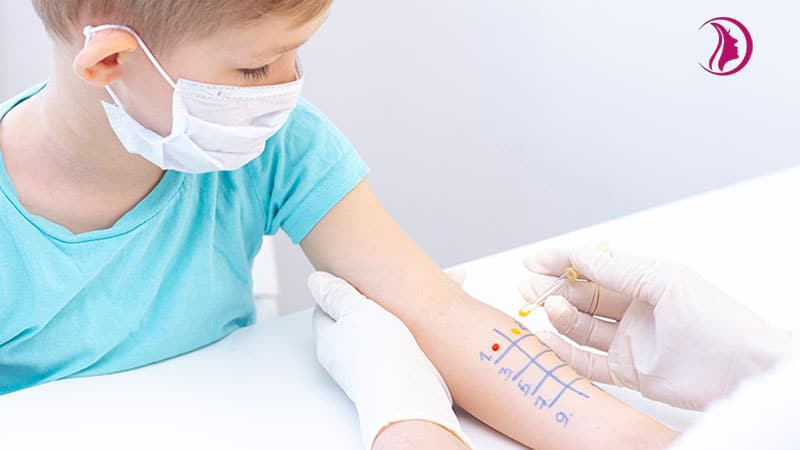During allergy skin tests, your skin is exposed to suspected allergy-causing substances (allergens) and is then observed for signs of an allergic reaction.
Along with your medical history, allergy tests may be able to confirm whether a particular substance you touch, breathe or eat is causing symptoms.
Why it’s done
Information from allergy tests may help your doctor develop an allergy treatment plan that includes allergen avoidance, medications or allergy shots (immunotherapy).
Allergy skin tests are widely used to help diagnose allergic conditions, including:
- Hay fever (allergic rhinitis)
- Allergic asthma
- Dermatitis (eczema)
- Food allergies
- Penicillin allergy
- Bee venom allergy
Skin tests are generally safe for adults and children of all ages, including infants. In certain circumstances, though, skin tests aren’t recommended. Your doctor may advise against skin testing if you:
- Have ever had a severe allergic reaction. You may be so sensitive to certain substances that even the tiny amounts used in skin tests could trigger a life-threatening reaction (anaphylaxis).
- Take medications that could interfere with test results. These include antihistamines, many antidepressants and some heartburn medications. Your doctor may determine that it’s better for you to continue taking these medications than to temporarily discontinue them in preparation for a skin test.
- Have certain skin conditions. If severe eczema or psoriasis affects large areas of skin on your arms and back — the usual testing sites — there may not be enough clear, uninvolved skin to do an effective test. Other skin conditions, such as dermatographism, can cause unreliable test results.
In general, allergy skin tests are reliable for diagnosing allergies to airborne substances, such as pollen, pet dander and dust mites. Skin testing may help diagnose food allergies. But because food allergies can be complex, you may need additional tests or procedures.
Allergy tests, without a doctor’s exam, usually are not reliable.
Many drugstores and supermarkets offer free screenings. And you can even buy kits to test for allergies yourself at home. But the results of these tests may be misleading.
- The tests may say you have an allergy when you do not. This is called a “false positive.”
- These free tests and home tests for food allergies are not always reliable.



